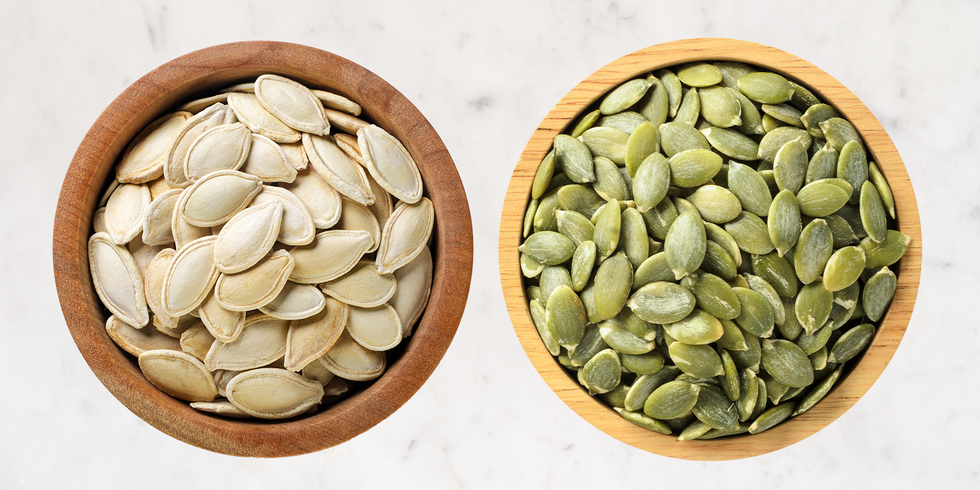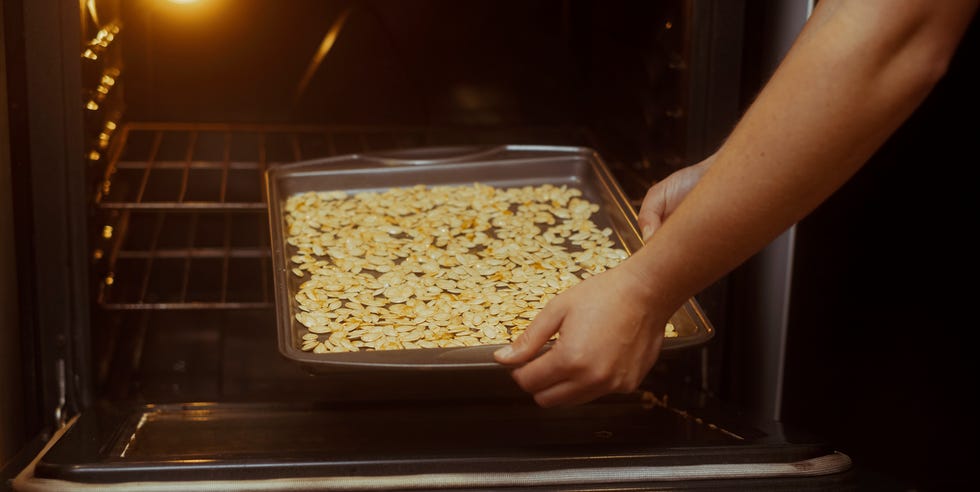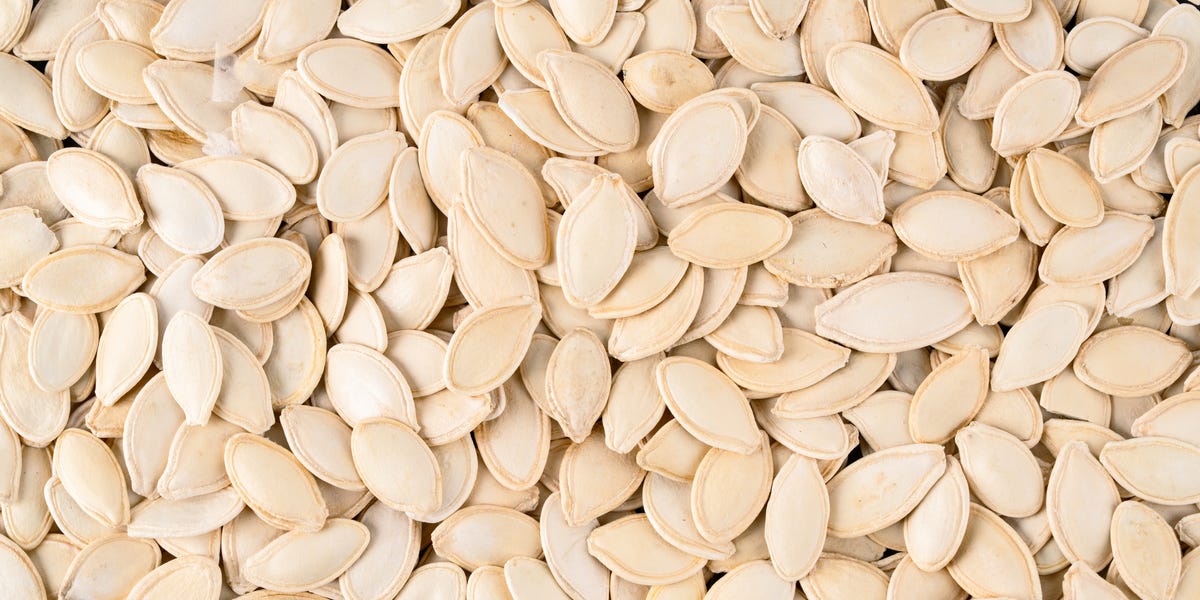Pumpkin seeds are a popular snack and pantry ingredient to add extra crunch to your recipes.Experts say the seeds are rich in protein, healthy fats, and fiber.That fiber, however, can cause gastrointestinal issues if consumed in large quantities.
Whether you buy them at the store or end up with them after carving Halloween jack-o-lanterns, pumpkin seeds are one of our favorite ingredients. You can season them however you want—sweet, salty, or both!—and use them in countless ways. They’re the ultimate salad topper, add a nice crunch to homemade granola, and can even be transformed into a candy that’ll put any peanut brittle to shame.
No matter how you’re serving pumpkin seeds, it’s hard to stop at just a handful. Almost all of us have overindulged in pumpkin seeds at some point. It’s a common occurrence, but is it dangerous?
We consulted dietitians and nutritionists to unpack everything you need to know about pumpkin seeds. So the next time you decide to snack, you know how they can contribute to a healthy diet.
What Are The Nutrition Benefits Of Pumpkin Seeds?
Hanna Day-Tenerowicz
Like with many other types of seeds, pumpkin seeds pack a lot of nutrients into a small package. “Pumpkin seeds are tiny but mighty,” says Carolina Schneider, M.S., R.D., in-house nutritionist at Daily Harvest. “They are rich in protein, healthy fats, and essential minerals.” A single one-ounce serving provides between 7 and 8 grams of plant-based protein.
Pumpkin seeds also provide multiple micronutrients that support important body functions. Magnesium is one particularly valuable mineral found in each tiny seed—one that nutritionist Dr. Daryl Gioffre says is often lacking in American diets. “By getting plenty of magnesium, you’re going to have more energy, better rest, a stabilized mood and mental health, and a better metabolism, which all contribute to your overall energy level,” he adds.
You can also find significant amounts of zinc, which supports your immune system, helps regulate insulin levels, and can even reduce sebum levels in your skin (which can help with acne).
What Are The Health Risks Associated With Eating Pumpkin Seeds?
Alex Ratson//Getty Images
Pumpkin seeds have a lot to offer your diet, but that doesn’t necessarily mean you should clear an entire bag in one sitting. Health and nutrition experts stress the importance of moderation when it comes to eating your favorite foods—and pumpkin seeds are no exception. A one-ounce serving clocks in at around a quarter cup. If you exceed that serving size, you risk a few adverse effects.
These tiny seeds are nutrient-dense, but Schneider says they’re also calorie-dense, with 160 calories per serving. Many of those calories come from fat, so she warns that “overconsumption might contribute to digestive discomfort or stomach upset, especially for people who have fat malabsorption issues.”
Kristen Lorenz, R.D., owner of KLL Nutrition, says that roasting your own seeds at home also presents another important consideration: fiber. “The shells pack nearly three times more fiber—5.2 grams per serving compared to 1.8 grams in shelled seeds,” she says. “While fiber is great for digestion, a sudden spike can cause bloating or constipation, especially if you’re not used to it.”
Both Schneider and Lorenz also warn about sodium levels (especially if you’re buying pre-roasted pumpkin seeds from the supermarket). “Salted varieties can be high in sodium, which is important to watch, especially for those with high blood pressure or anyone limiting salt intake,” Schneider says.
The Bottom Line
Pumpkin seeds are a powerhouse snack—loaded with protein, healthy fats, and key minerals like magnesium and zinc—but they’re best enjoyed in moderation. A handful adds satisfying nutrition to your day, but polishing off the whole bag can lead to bloating or stomach upset (and more sodium than you need). Experts say to enjoy this snack in about 1/4-cup doses, and your body will thank you.

